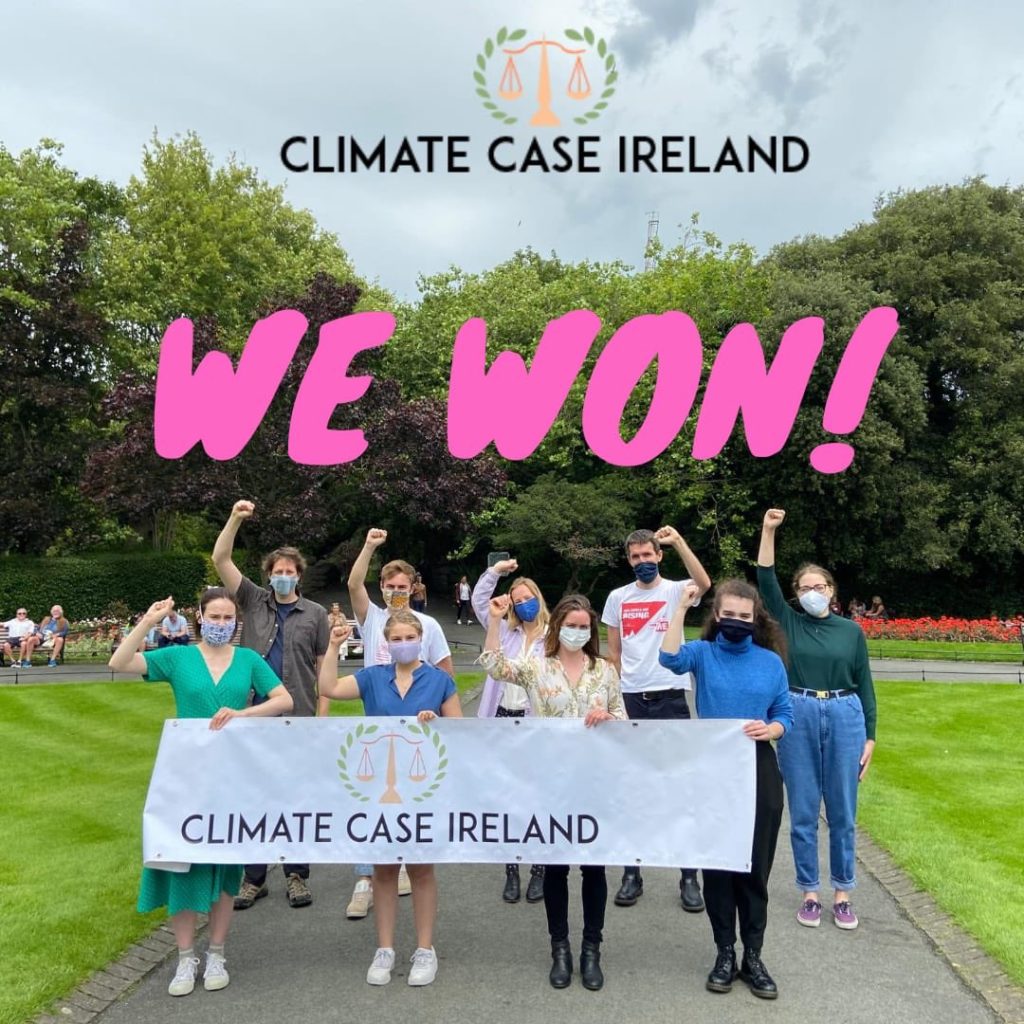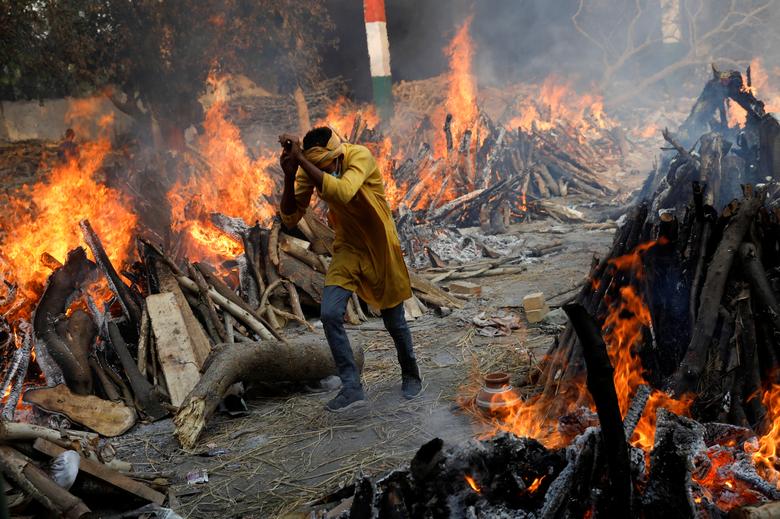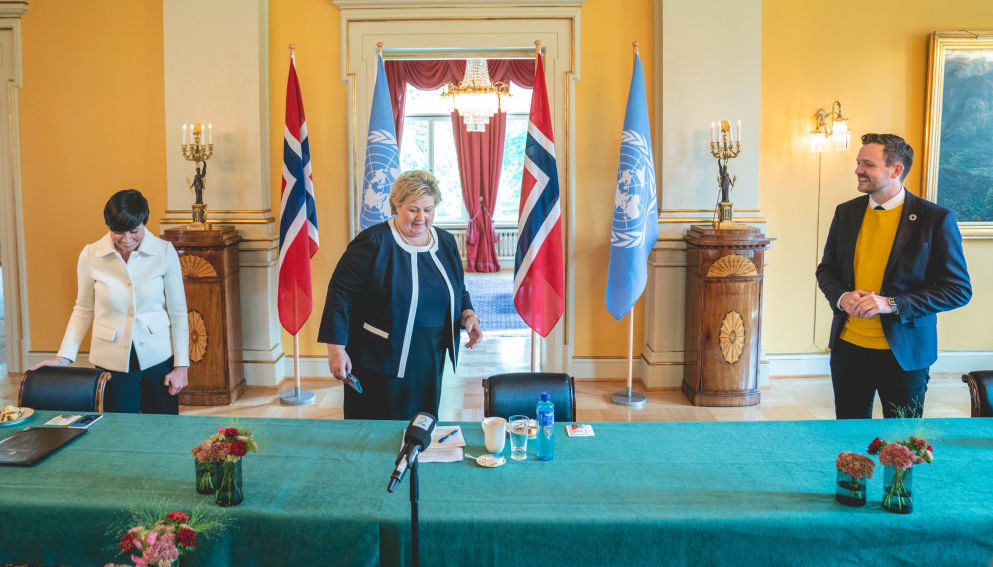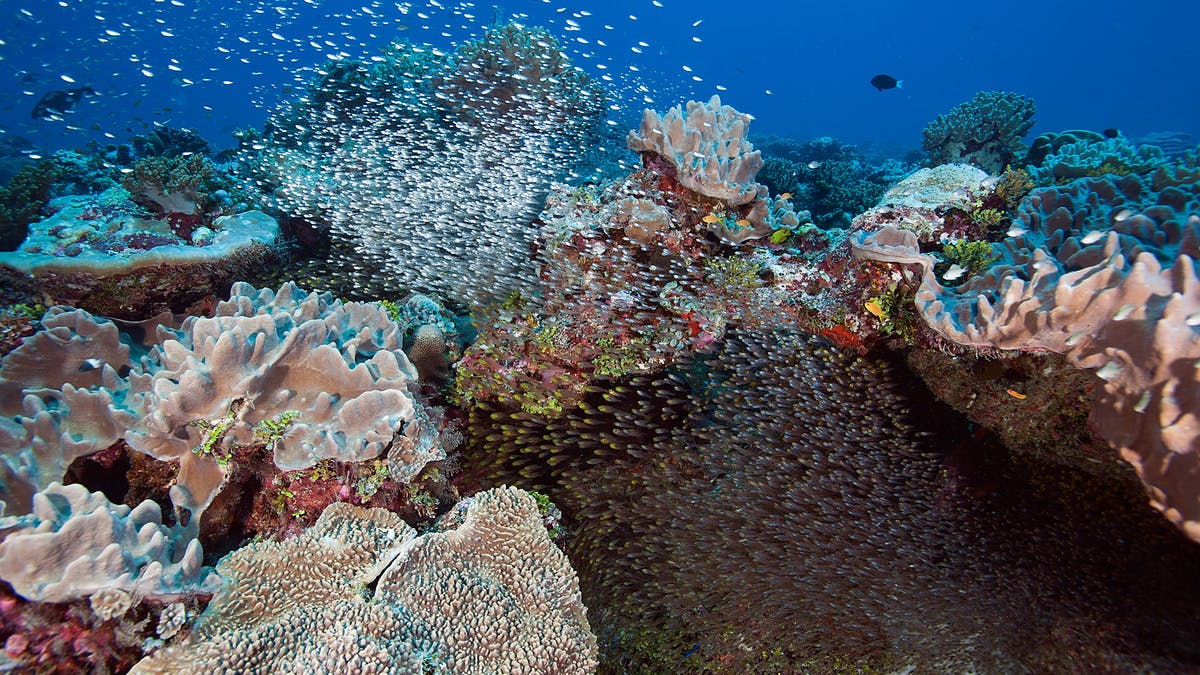
The Irish Government can no longer make promises it will not fulfill. It has a legal obligation to protect citizens from the worst impacts of climate change by reducing Ireland’s emissions in the short-term. Failure to do so is a breach of its legal obligations on climate change.
Beth Doherty of Fridays for Future Ireland
Climate change is a threat to all of us, yet the Irish Government’s climate policy is weak and unambitious. We’re taking the Government to court to demand more climate action. We need your support to show the Government that this case is for all of us: https://t.co/hYktPmf6c0 pic.twitter.com/wMNOV34w1i
— Climate Case Ireland (@climatecaseire) May 9, 2018
Today, Friends of the Irish Environment (FIE) won their historic legal challenge, known as ‘Climate Case Ireland,’ against the Irish Government. The landmark Supreme Court judgment held that the Government’s National Mitigation Plan, the main plank of its climate change policy, failed to specify the manner in which it is proposed to achieve the ‘national transition objective’, as required by the Climate Act 2015.[1] This means that the Government has failed to specify how it plans for Ireland to transition to “a low carbon climate resilient and environmental sustainable economy by the end of 2050”. The Government must now create a new, more ambitious National Mitigation Plan that complies with Ireland’s national and international climate obligations.
Climate Case Ireland is the first case of its kind in Ireland and only the second case in the world in which the highest national court of law has required a Government to revise its national climate policy in light of its legal obligations.
Ireland currently has one of the highest levels of greenhouse gas emissions per capita in Europe and, contrary to longstanding recommendations of the UN’s Intergovernmental Panel on Climate Change (IPCC), Ireland’s emissions have been rising rather than falling. The Environmental Protection Agency projects that Ireland’s emissions will increase significantly over the period 1990 to 2020, when the Government has repeatedly endorsed the IPCC’s advice that emissions need to fall rapidly and deeply over this period to help avert dangerous climate breakdown.
The case was heard in the Supreme Court just last month (June 22nd and 23rd) by an exceptional seven Supreme Court Judges – the composition reserved exceptionally for cases of particular importance or complexity. The remarkably quick turnaround by the Supreme Court in issuing its judgment just one month later reflects the urgency of the climate crisis and the need for the Irish Government to respond in a timely manner.
Clodagh Daly, spokesperson for Climate Case Ireland, commented:
“We are overwhelmed with gratitude for our supporters for taking this journey with us. Exciting as a legal win may be, the real work now lies in the creation of a transformed National Mitigation Plan – one that guarantees the rapid and dramatic reduction of Ireland’s emissions.”
“Ireland contributes disproportionately to the climate crisis, but we have the means to lead the (dangerously overdue) transition to a low-carbon economy and society. It is technologically and economically feasible for us to achieve this – and the Supreme Court has now affirmed that there is no legal basis for a lack of political will. The government needs to step up.”
FIE’s victory has significant international, as well as national, repercussions.
It confirms that developed countries, which have historically disproportionately contributed to climate change, must take the lead in reducing emissions.
Dr. David R. Boyd, UN Special Rapporteur on human rights and the environment, commented:
“This landmark decision recognizes the urgency of responding to the climate emergency and sets a precedent for courts around the world to follow.”
Solomon Yeo, a member of the Pacific Island Students Fighting Climate Change, added:
“The Irish Supreme Court has affirmed what we know to be true: governments have legal obligations to take urgent action to fight climate change. Courts have a crucial role to play in holding governments to account, but they are a last resort. The law is clear: governments must act now to address the climate catastrophe.”
Marjan Minnesma, CEO of Urgenda, noted:
“The Irish Supreme Court has taken a historic step today that will give hope to people all over the world. When so many people feel like their governments are not listening to their concerns about the climate crisis, this ruling shows that courts can play a critical role in addressing this crisis. This decision is welcome inspiration and governments around the world should pay close attention.”
Background information
The application for judicial review of the 2017 National Mitigation Plan was launched by Friends of the Irish Environment in October 2017 on behalf of all concerned Irish citizens. The case challenges the State’s decision to adopt a National Mitigation Plan that will lead to greenhouse gas (GHG) emissions increasing by about 10% over the period 1990-2020 when the government has itself agreed that a reduction in emissions of 25-40% over this period would be needed to help avert dangerous climate change.
An online petition for Climate Case Ireland attracted over 20,000 signatures of support and a large public rally was also held in support of the case prior to the hearing in the High Court. The case was heard in the High Court by Mr. Justice MacGrath from January 22-25th 2019. Supporters packed out the High Court during the four-day hearing in 2019, in almost unprecedented scenes.
In September 2019, the High Court ruled against FIE, holding in a complex judgment that, inter alia, the government must be afforded broad discretion in adopting Plans under the Climate Act, on ‘separation of powers’ grounds.[2] FIE appealed the case to the Court of Appeal and simultaneously to the Supreme Court in November 2019. In February 2020, the Supreme Court determined that exceptional circumstances warranted a direct ‘leapfrog’ appeal to it, noting that the case raised issues of general public and legal importance, and that there was no dispute between FIE and the government as to climate science or the gravity of the likely effects of climate change.
The 2017 National Mitigation Plan has been strongly criticised by the government’s own Climate Change Advisory Council, who stated that Ireland is “completely off course,” in terms of achieving its 2020 and 2030 EU emission reductions targets and that Ireland’s emissions are “disturbing”.[3]
For more information on the case, see www.climatecaseireland.ie
Photos for use by press can be found here
Friends of the Irish Environment (FIE)
Established in 1997, FIE is non-profit Company Limited by Guarantee and a Charity registered in Ireland. It is a member of the European Environmental Bureau and the Irish Environmental Network. Registered Office: Kilcatherine, Eyeries, Co Cork, Ireland. P75 CX53 Company No.326985. Charities Registration No. 20154530. Tel & Fax: 353 (0)27 74771. Email: admin@friendsoftheirishenvironment.org
Contacts:
Clodagh Daly – 086-155-5581 or info@climatecaseireland.ie
Tony Lowes – 087-217-6316 or admin@friendsoftheirishenvironment.org
[1] The Supreme Court’s judgment can be found here.
[2] The Climate Case Ireland 2019 High Court judgment is available here.
[3] Climate Change Advisory Council, Annual Review 2018, available here.
ABOUT CLIMATE CASE IRELAND
This legal action taken by Friends of the Irish Environment (FIE) is the first case in Ireland in which citizens are seeking to hold their government accountable for its role in knowingly contributing to dangerous levels of climate change. The case was heard in January 2019 and we’re currently awaiting the judgment from the High Court. The case seeks to build on FIE’s legal successes, including the recognition in 2017 of an unwritten right to environmental protection in the Irish Constitution.
The extreme impacts of climate change are beginning to hit home in Ireland, from severe flooding through ex-Hurricane Ophelia to the ‘Beast from the East’ (caused by disruption of the polar vortex as a result of exceptionally warm Arctic temperatures) and the summer drought in 2018. We need to act urgently to ensure this and worse does not become the new normal for us and for our children and grandchildren.
COURT HEARING AND CHILDREN’S RALLY
Our case was heard in the High Court in Dublin over four days – from 22-25 January 2019. In the lead up to the hearing a series of events were held in support of the case, culminating in a large Children’s Rally for Climate Action outside the Irish parliament the weekend before the hearing.
The hearing itself was an incredible experience with an amazing atmosphere, captured well in this newspaper article in the Irish Examiner from the first day of the hearing. Public interest in the hearing was such that there were people standing in the courtroom because all available floor space was taken with people sitting, in addition to all the seats being taken!
A great crowd joined us for the judgment of the High Court on 19th September 2019. While the decision went against us at the first occasion, we’ve not given up and decided to appeal! Our historic climate case will now be heard by an exceptional seven Supreme Court Judges on Monday the 22nd and Tuesday the 23rd of June, 2020. Climate Case Ireland is one of only a handful of climate cases around the world to make it to the highest national court of law.
IMPACTS OF CLIMATE CHANGE
Amongst the many impacts of climate change, the World Health Organization has estimated that about 250,000 additional people will die as a result of climate change each year from 2030 to 2050. So the impacts of climate change are being and will be felt in our time, and they can be counted in millions of unnecessary and preventable deaths. Our case calls on the Irish government to act now to help prevent such suffering.
This case is for everyone in Ireland, young and old. We’re hoping the case will capture imaginations here and abroad and galvanise a movement pushing for ambitious and urgent action.





